“Camilla with friends of infancy” by Beatrice Brandini
Exhibition entrance “Giro Giro Tondo Design for Children” at Triennale, Milan
“Round trip around, hit the world, hit the ground, all down on the ground ….”
I opened with the rhyme of an unforgettable game when we were children, rhyming, which also gave the name to a beautiful exhibition at the Triennale of Milan (open until February 18, 2018).
Setting up Giro Giro Tondo Design for Children. Hall Overture installation with iconic off-the-shelf objects. Featured “Cico” by Stefano Giovannoni, 2000. Courtesy Museo Alessi.
Setting up Giro Giro Tondo Design for Children. Hall Overture. “Boccadoro” Studio 65, Franco e Nanà Audrito, 2015. Courtesy Gufram.
“Hopebird” Hayon Studio, 2012. Courtesy Bosa “Globe” Studio Job, 2014. Courtesy Gufram.
“Attila” by Philippe Starck per Kartell, 1999. Courtesy Kartell.
Reworking of Veronica Martini of characters of “Balli Plastici” by Fortunato Depero.
The director of the Triennale Design Museum, Silvana Annicchiarico, said in a beautiful interview to Corriere della Sera that “children are bright puzzles that we can not decode”, so the exhibition is articulated allowing the visitor (children, but also adults ) a path with multiple read keys. Moreover, always from the words of the curator Annicchiarico, “the exhibition intends to intertwine the history of Italian design with the history of children in Italy”, so it is entrusted to a large group of curators, with the artistic direction of Stefano Giovannoni.
The show begins with iconic objects of ingenious Italian design, a room to enter is to project into a fantastic, almost enchanted, world (Alice in Wonderland) and then develop into five different sections dedicated to the relationship of children with objects and furnishings, with games, with architecture, with signs, images and graphics, and finally with education.
Furnishings in the Giro Giro Tondo Design for Children.
Furnishings in the Giro Giro Tondo Design for Children.
Furnishings in the Giro Giro Tondo Design for Children.
Beautiful wall of Rocking Horses. Collezione Marzadori Bologna.
Rocking Horses
Rocking Horses
Rocking Horses
“Carnevale di birilli”, toy of the thirties. Collezione Marzadori Bologna
“Minnie”, thirties. Sevi. Collezione Marzadori Bologna
Mickey Mouse, thirties. Collezione Marzadori Bologna
Crocodile thirties. Marzadori Collection Bologna
Skittles. Marzadori Collection Bologna
Rabbit thirties. Marzadori Collection Bologna
Giants skittles forties. Marzadori Collection Bologna
“Balilla” skittles thirties. Marzadori Collection Bologna
Dolls Lenci and Mr Bonaventura, both of the thirties. Marzadori Collection Bologna
Scooter thirties. Marzadori Collection Bologna
Doll room and miniature kitchen. Marzadori Collection Bologna
Games. A history of Italian toys from the early twentieth century to the presentday, with all their innovation and traditions, rules and creativity, craftsmanship and techonlogy, fun and education, genders and roles, and materials and sustainability.
Disney characters sixties. Fabrizio Fontanella Collection
Furga dolls. Civic Museum – Toys Collection Furga – Canneto sull’Oglio
Furga doll. Civic Museum – Toys Collection Furga – Canneto sull’Oglio
Gaetano Pesce UpJ, C&B Italia, B&B Italia 1969
Cute bear cub
Stefano Giovannoni “Magic Bunny”, Alessi 1998 reinterpreted by Riccardo Zangelmi with Lego blocks, 2017. Stefano Giovannoni, Guido Venturini “Girotondo” Alessi 1989, out of scale riproduction made of Minelli WBricks, 2017. Courtesy Minelli
Wood robot
View of the exhibition Giro Giro Tondo Design for Children
Wonderful tin constructions, Studio Dalisi. Tecnica povera emerged from street workshop with children, and Dalisi put it into practice in the early 1979s in the Traiano district of Naples
“Maternità” 2006. Studio Dalisi
There are also specific insights dedicated to important characters or figures, such as Fortunato Depero to whom a whole wall is dedicated, Munari (one of the greatest!), Pinocchio, etc. Fantasy characters or great intellectual artists who have been able to speak of childhood by communicating above all to its protagonists: the children.
A great corner is in fact dedicated to Pinocchio, the most beloved puppet. A novel published 136 years ago, speaks (and reflects) still to generations, with its kaleidoscope of characters that are then portrayed of life itself. Ever regarded as one of the most iconic toys.
Stefano Giovannoni “Pino”. Museo Alessi
Various editions on Pinocchio
Pinocchi in various materials produced from the 1920s to the 2000s.
Stefano Giovannoni Kong. Magis
Riccardo Dalisi
“Il sassofonista” Studio Dalisi
Whale
Another glimpse of the exhibition
Massimiliano di Lauro
Massimiliano di Lauro
Massimiliano di Lauro
Francesco Tullio Altan “La Pimpa”
Francesco Tullio Altan “La Pimpa”
“La Linea” by Osvaldo Cavandoli
Bruno Munari “Alla faccia!” Corraini Edizioni, 1992.
Bruno Munari “Alla faccia!” Corraini Edizioni, 1992.
“All the big ones were kids once. But few of them remember “Saint-Exupéry. This exhibition is perfect to remind you.
Another glimpse of the exhibition
Another glimpse of the exhibition
A magnified version of “Quadratino”, a character designed by Antonio Rubino in 1910, becomes the gateway to this magnificent exhibition. It is worth visiting this exhibition with our children but also on our own, to return a little children and make us overwhelm, once again, by amazement.
“The child is one hundred …” Loris Malaguzzi
I conclude with this great truth by Loris Malaguzzi: “THE CHILD IS ONE HUNDRED…”. We adults forget it too often, children are in fact a whole lot of things, and this is their wealth. We do not try to codify them all, channeling them into standard behaviors. It’s nice to have something different every day (“My best friend is Giulio,Giulio is no longer my friend.” Mum today I want to make the astronaut, mom I thought it would be a sculptor I love cookies with white chocolate , mom by now those biscuits are passed “…. and so on ..).
Good life to everyone!
Beatrice


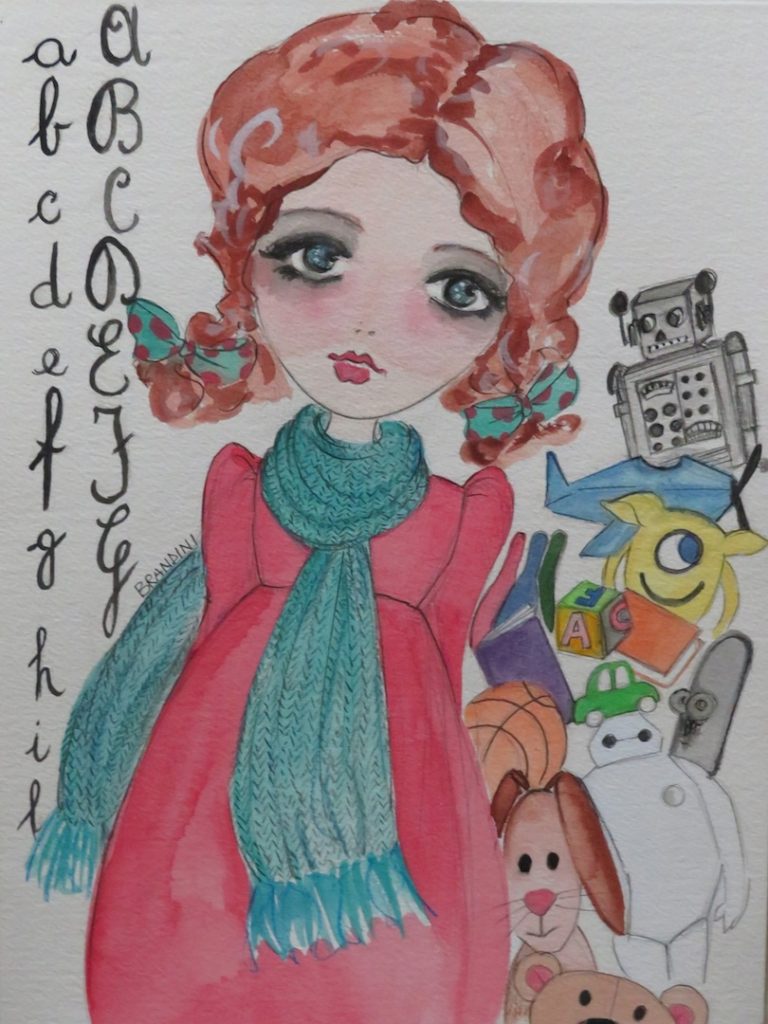


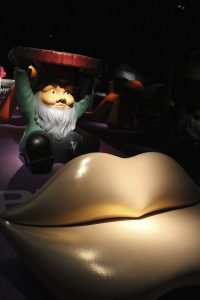
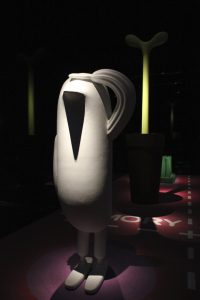
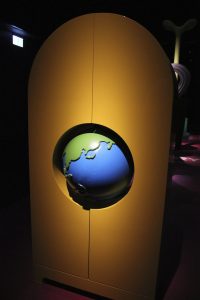











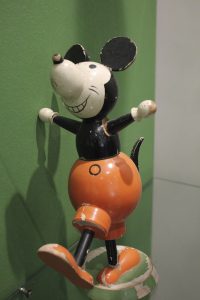


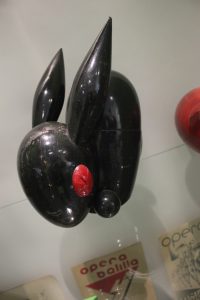
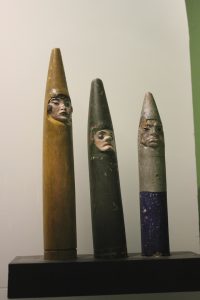





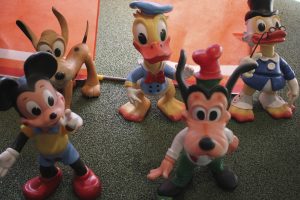
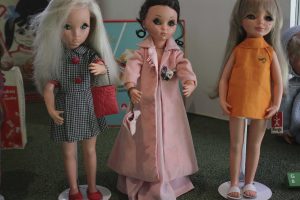
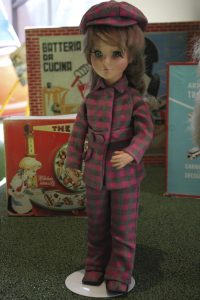
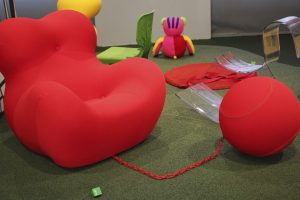
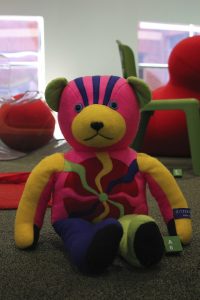
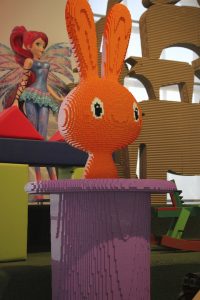

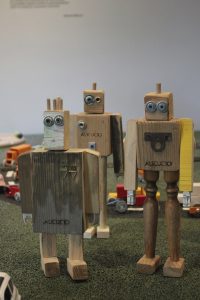
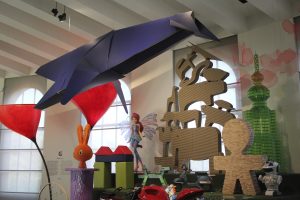
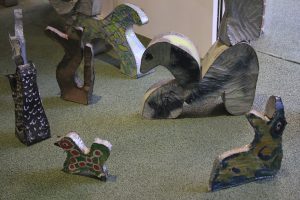

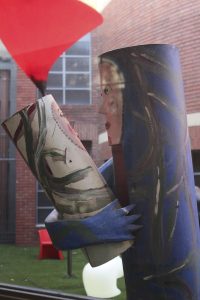
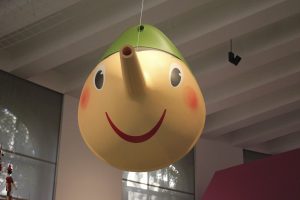
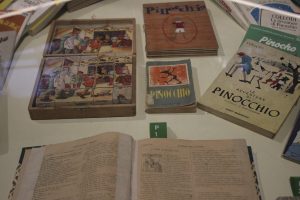
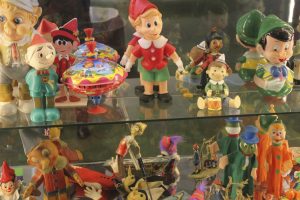
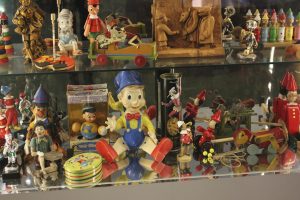
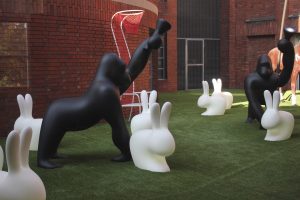
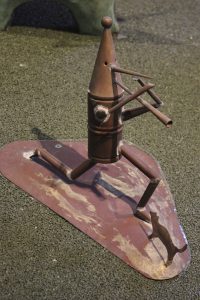
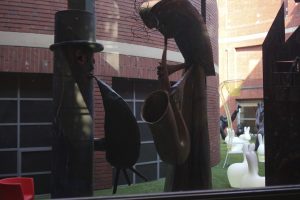

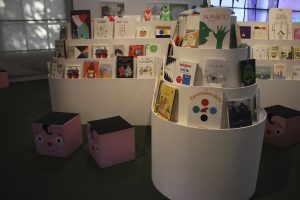
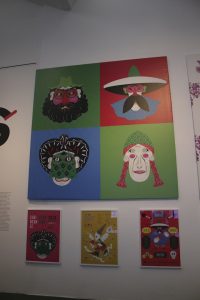
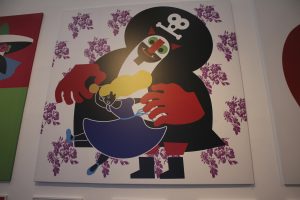
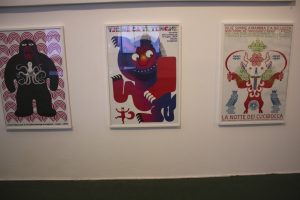
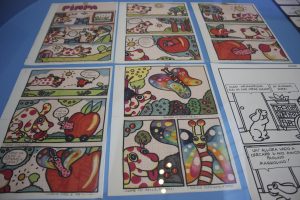
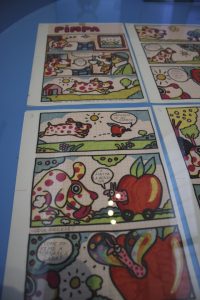
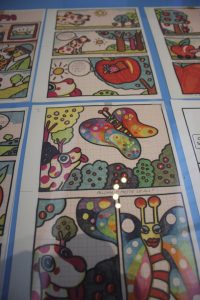
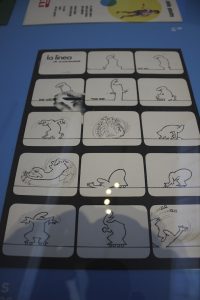
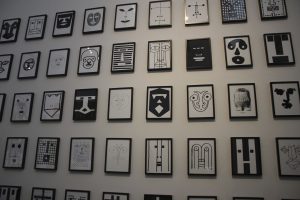
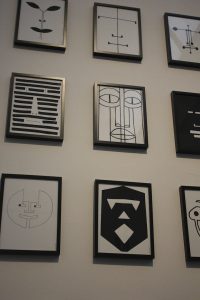
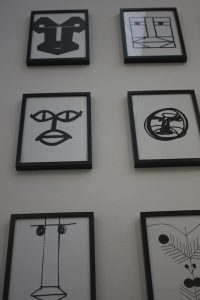

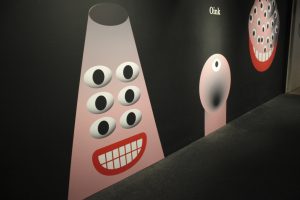
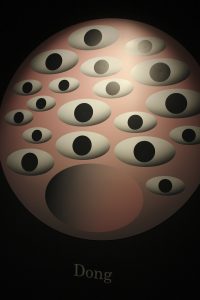
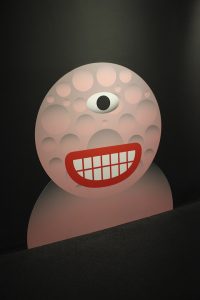
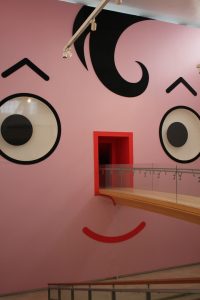
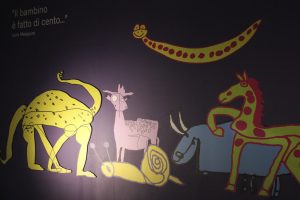
I enjoy the report